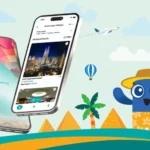With over 2,000 languages, it is no surprise that Africa is one of the most linguistically diverse places on the planet. Indeed, most Africans are believed to be fluent in at least two languages and even, a third.
So, even as the rest of the world debates whether or not Mandarin is the most important language of our times or if English has lost its prominence, people in Africa know that multilingualism is an asset.
Still, with the gig economy booming all across the continent, more individuals realizing their entrepreneurial dreams with QNET in Africa and a greater potential for cross-border interactions, it has become more important than ever for African business persons to expand and develop their linguistic capabilities.
Not convinced? Here are some of the key ways learning one, two or more new languages can benefit you, both in business and your life in general.
Helps you think and manage better
First things first, if you are already conversant in a couple of languages, congratulations! But how would you like to increase your thinking power?
As entrepreneurs, our brains are constantly at work and focused on meeting goals and managing people. And that is precisely why we ought to ensure this most vital of organs is fit and healthy.
Yes, eating right and getting enough sleep can put you on the path to optimum health. But experts note that learning a new language — regardless of whether it is French, Portuguese, Swahili, Yoruba or Zulu — can also make a difference.
Think about how you are constantly called upon as an entrepreneur to deal with demanding clients while also formulating business plans. Well, studies show that being multilingual can help us not only resolve issues more efficiently, but also plan better.
Heightens productivity

On the subject of boosting brain health, one of the biggest selling points of multilingualism is how it encourages productivity.
That’s right. Research has found that those who converse in multiple languages can toggle between thought processes easily. And this, in turn, helps one both filter out irrelevant information and multitask.
Granted, it does not immediately follow that by learning a new language, entrepreneurs will automatically be able to double or triple their sales volumes and commissions.
However, it can help. And there is ample evidence to suggest that multilingualism can indeed swell a business’ bottom lines.
Improves communication and inclusiveness

Meanwhile, regardless of whether you are speaking with your team, developing a sales strategy or seeking to communicate ideas, effective communication is vital. And learning a new language is one of the ways you can improve your various interactions.
People tend to respond better to those they can identify with. Thus, sharing a common language helps forge stronger ties. Furthermore, being multilingual can also help you bridge cultural gaps.
In a nutshell, every language has linguistic nuances, and appreciating these can help you understand the values, beliefs, and traditions of others.
Increases opportunities for new experiences
Incidentally, being conversant in another language — especially one of the many African languages — can make travelling around the continent that much more rewarding.
Yes, English and French are widely spoken. So, one could easily visit many of Africa’s top travel destinations by being fluent in just those languages.
Nevertheless, if you are looking for a deeper, more fulfilling experience — which can be obtained from interacting with locals and immersing yourself in the culture of a place — it would pay to learn one of the many indigenous African languages.
Not sure what to go with? Well, Yoruba (which is spoken mainly in Nigeria), Swahili (spoken in Kenya, Tanzania and many regions in East Africa), Xhosa (South Africa) and Amharic (mainly Ethiopia) together share over 210 million speakers. Hence, you would be opening yourself to a world of experiences by learning just those four.
Provides more educational opportunities
Besides affording one with new cultural experiences, multilingualism can also present more avenues for educational growth.
For instance, certain countries offer free or affordable education to international learners, provided that they are conversant in the local language. Hence, it might be time to consider learning German, French, Dutch or one of the other languages that can give you a leg up academically.
What’s more, certain countries allow students to both study and work. So, on top of a new language being great for academic pursuits, it might also help you secure work.
Opens up more business markets
Speaking of work, being multilingual can also be of vital importance to entrepreneurs who are looking to expand their networks across borders.
Essentially, direct selling does not place high bars on entry, and welcomes anyone and everyone, regardless of background, experience or geographical location. Hence, it is always possible to extend your reach and make an impact beyond your current base of operations.
That said, being fluent in a given local language will allow you to interact better with customers and business partners, and prevent both misunderstandings and missed opportunities. It can also make it easier to forge strong, trusting relationships.
And even better, it can also give you a competitive edge.
True, from Ancient Greece and Egypt to the Roman Empire, economic success has always been determined by how effectively businesspersons can cut across demographic and cultural divides.
Yet, in this ultra-globalised world, business is more dynamic than ever. One way for African entrepreneurs to be at the forefront of change and ensure both personal and business growth is to tap into the power of language.






